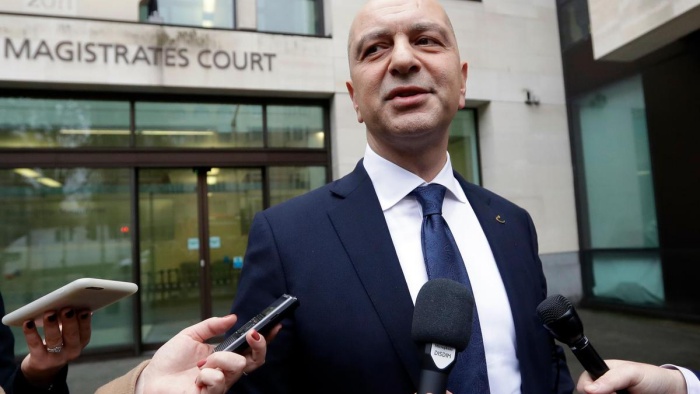The Turkish government issued a decree immediately after a failed coup in 2016 and ordered the closure of 15 universities affiliated with the faith-based Gülen movement, a move that created problems for students enrolled in the institutions and university assets owned by private foundations.
The Higher Education Board (YÖK), which regulates Turkish universities, found a temporary solution for assets, stating that those public universities to which the students would be transferred could also use the furniture and fixtures and buildings of the Gülen-linked universities for a period of time.
However, after three years, it appears that the buildings and their contents were rarely used, largely wasted or became a problem between public universities.
One of them was Canik Başarı University in Samsun province. According to a local media report on March 31, 2018, all of Canik Başarı’s assets, including buildings, were destined to be transferred to the newly established Samsun University, which was announced by President Recep Tayyip Erdoğan.
However, when officials from Samsun University entered the buildings, supposedly sealed off two years ago, they saw that all the furniture and fixtures were gone. Following a brief investigation the local paper claimed that all property, including library books, computers and even air conditioners were taken by officials from Samsun’s older university, On Dokuz Mayıs.
In February 2019 Samsun’s rector Professor Mahmut Aydın told local reporters that they had trouble purchasing necessary equipment since they only had a TL 8 million ($1.3 million) budget from the government.
In İzmir the Turkish government established Bakırçay University on the premises of Gediz University, which was closed down after the failed coup, and President Erdoğan named Professor Mustafa Berktaş as university rector at the end of the next year.
When Berktaş gave an interview to a pro-government newspaper in late 2018, he was still complaining about technical problems in the university buildings stemming from the fact that no one had used or maintained them for more than two years.
Ankara accuses the Gülen movement of orchestrating the 2016 coup attempt, although it strongly denies any involvement.
Over half a million people have been subjected to prosecution for alleged membership in the movement, and the government seized the companies of dozens of businessmen in Turkey.
In addition to the 15 universities, Turkey seized 35 hospitals, 934 schools, 109 student dormitories, 104 foundations, 1,125 associations and 19 unions due to Gülen links.
Some officials claimed the overall value of those assets were around TL 100 billion ($16.5 billion) and that the universities, along with the hospitals, had the most valuable property, including real estate and buildings.
Transferring students to other universities also caused some problems. In Gaziantep, students of the now-closed Zirve University had trouble obtaining the necessary papers to make the transfer in August 2016. Officials assigned by YÖK threw the necessary legal documents into the schoolyard, according to BBC Turkish service.
The Zirve buildings were also transferred to Gaziantep University.
Akın İpek, once a wealthy Turkish tycoon who owned gold mines and various enterprises along with a university established in 2011, expressed disappointment several times on Twitter about the government seizure of İpek University.
The Turkish government requested the extradition of İpek for his ties to the Gülen movement from the UK, which found the request baseless. İpek’s assets worth billions of dollars were seized by the government.

İpek was personally involved in the technical details of university campuses in the Turkish capital city of Ankara.
One of the campuses of the university was given to the Environment and Urban Planning Ministry, while another has become the Ankara Social Sciences University.
When he saw the famous “red door” from a campus in a Turkish daily that had interviewed the new rector of Ankara Social Sciences University about his plans for the new semester, he resentfully tweeted that “no one asked who built this one!”
“I personally dealt with the university’s planning and construction,” İpek tweeted another time, adding that he put much effort into the building housing the large library.



